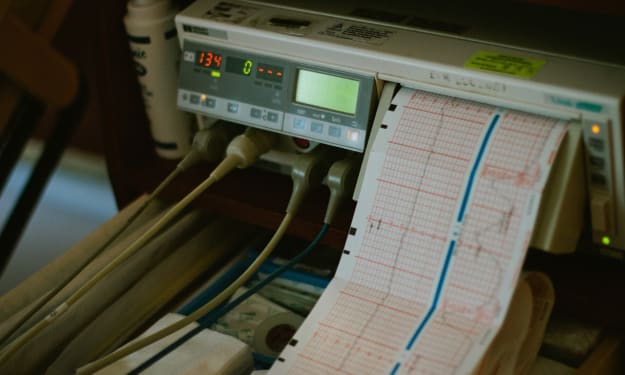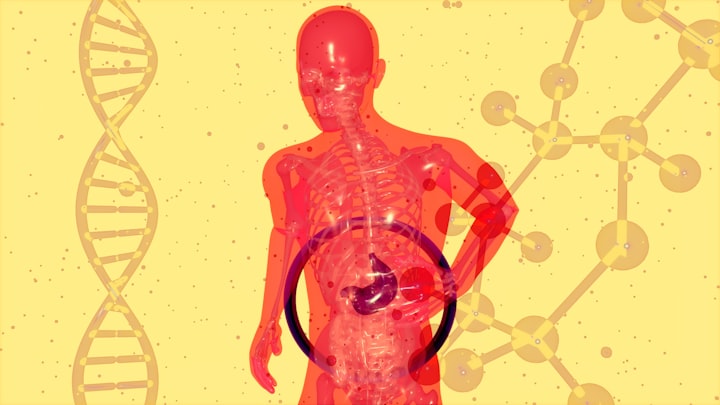
Title: Unraveling the Complex Journey: Understanding the Development of Cancer in the Human Body
Abstract:
Cancer, a formidable group of diseases characterized by uncontrolled cell growth, continues to be a significant global health challenge. To comprehend the intricate process of cancer development, one must delve into the complex interplay of genetic, environmental, and lifestyle factors that contribute to tumorigenesis. This comprehensive article explores the multifaceted journey of cancer development in the human body. From the initiation of genetic mutations to the progression of malignant tumors, we elucidate the mechanisms behind this disease's origin, growth, and spread, shedding light on current research and potential avenues for prevention and treatment.
Introduction:
Cancer remains one of the leading causes of morbidity and mortality worldwide. Understanding the intricacies of cancer development is vital for devising effective strategies for early detection, prevention, and treatment. This section introduces the concept of cancer development in the human body and outlines the key topics covered in the article.
The Basics of Cell Biology and Cancer:
A fundamental comprehension of cell biology is essential to grasp the development of cancer. This section provides an overview of normal cell growth, division, and the checks and balances that regulate cell proliferation.
The Role of Genetic Mutations in Cancer Initiation:
Genetic mutations play a critical role in the initiation of cancer. We explore the various factors that can lead to DNA alterations, such as environmental exposures, lifestyle choices, and inherited genetic predisposition.
Oncogenes and Tumor Suppressor Genes:
Oncogenes and tumor suppressor genes are key players in cancer development. This section elucidates their functions and how mutations in these genes can lead to abnormal cell growth.
Carcinogens and Environmental Influences:
Environmental factors, such as exposure to carcinogens, contribute significantly to cancer development. We discuss the role of common carcinogens, like tobacco smoke, ultraviolet radiation, and chemical pollutants.
Inflammation and Cancer:
Chronic inflammation is a recognized promoter of cancer. We explore how persistent inflammation can create a pro-tumorigenic microenvironment and accelerate cancer development.
Cellular Senescence and Immortalization:
Cellular senescence, the state of irreversible cell cycle arrest, acts as a barrier against cancer development. However, the evasion of cellular senescence and cellular immortalization are critical steps in tumorigenesis.
Angiogenesis and Cancer Progression:
Tumor angiogenesis, the formation of new blood vessels to supply nutrients and oxygen to the growing tumor, is essential for cancer progression. We discuss the role of angiogenesis in tumor growth and metastasis.
Epigenetic Changes and Cancer:
Epigenetic alterations, which regulate gene expression without altering the underlying DNA sequence, are implicated in cancer development. We explore how epigenetic modifications can contribute to oncogenesis.
The Process of Metastasis:
Metastasis, the spread of cancer cells from the primary tumor to distant sites, is a complex and critical step in cancer progression. This section delves into the mechanisms of metastasis and factors influencing the metastatic cascade.
Cancer Stem Cells:
Cancer stem cells are a unique subset of tumor cells with self-renewal capabilities. We examine their role in tumor initiation, maintenance, and resistance to treatment.
Immune System Evasion:
The immune system plays a crucial role in recognizing and eliminating cancer cells. Cancer cells can evade immune surveillance through various mechanisms, contributing to tumor growth and progression.
Tumor Microenvironment and Cancer Progression:
The tumor microenvironment comprises various cell types and molecules that interact with cancer cells. We discuss the dynamic relationship between the tumor and its microenvironment and its impact on cancer progression.
The Genetic Basis of Familial Cancers:
Some cancers have a hereditary component. We explore the genetic basis of familial cancers, such as BRCA mutations in breast and ovarian cancer, and the implications for cancer risk assessment.
Carcinogenesis and Viral Infections:
Certain viral infections are linked to the development of specific cancers. We discuss the role of viruses, such as human papillomavirus (HPV) and hepatitis B virus (HBV), in carcinogenesis.
Lifestyle Factors and Cancer Risk:
Unhealthy lifestyle choices, including poor diet, lack of physical activity, and tobacco and alcohol consumption, can increase cancer risk. We explore the impact of lifestyle factors on cancer development.
Early Detection and Cancer Prevention:
Early detection and prevention are essential for reducing cancer burden. We discuss cancer screening strategies, vaccination against cancer-causing viruses, and lifestyle interventions for cancer prevention.
Novel Therapies and Targeted Treatments:
Advances in cancer research have led to the development of targeted therapies and immunotherapies. This section highlights the promise of these novel treatments in the fight against cancer.
Precision Medicine in Oncology:
Precision medicine uses individual patient data to tailor cancer treatment based on the specific genetic and molecular characteristics of the tumor. We explore the potential of precision medicine in improving cancer outcomes.
Cancer Immunotherapy:
Immunotherapy harnesses the immune system to target and destroy cancer cells. We discuss different types of immunotherapy, including checkpoint inhibitors and CAR-T cell therapy.
Challenges and Future Directions in Cancer Research:
Cancer research faces various challenges, such as tumor heterogeneity and treatment resistance. This section looks at ongoing research and future directions for conquering cancer.
Conclusion:
Understanding the intricate journey of cancer development in the human body is essential for advancing cancer prevention, early detection, and treatment. Through continued research and innovation, we can strive to improve cancer outcomes and alleviate the global burden of this complex disease.
About the Creator
Piyal bal
I am a fervent writer in this mesmerizing,phenomenal platform to create essential,interesting stories of various subjects.






Comments
There are no comments for this story
Be the first to respond and start the conversation.